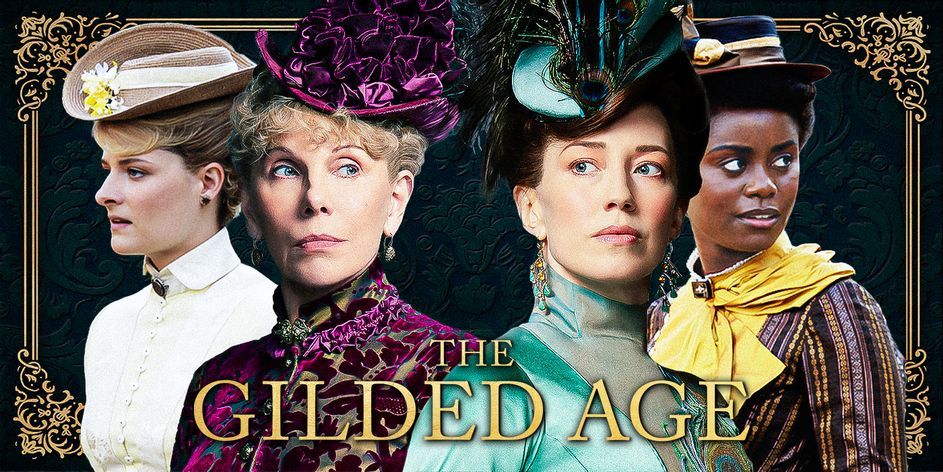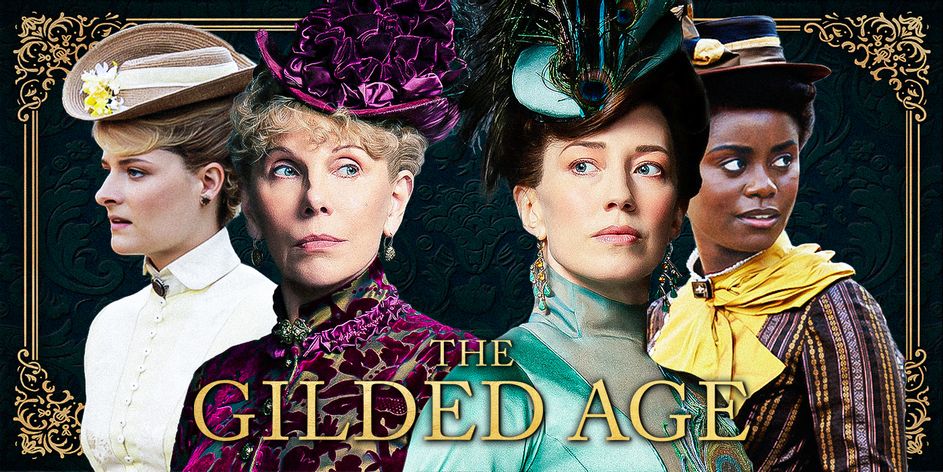
“The Gilded Age”—Greed and Betrayal

The Gilded Age (2022), created and produced by Julian Fellowes (of Downton Abbey fame) opens in 1882 in a small town in Pennsylvania. The penniless but “pedigreed” young Marian Brook (newcomer Louisa Jacobson has little recourse but to move to New York to live with her wealthy Aunt Agnes van Rhijn (Christine Baranski) and her Aunt Ada (Cynthia Nixon). A young aspiring Black writer, Peggy Scott (Denée Benton), lends money to Marian for a train ticket to New York and their unlikely friendship begins.
Across the street lives a spectacularly wealthier family, George (Morgan Spector) and Bertha Russell (Carrie Coon), who have made their fortune in the railroad industry. In a Gilded Age in which the wealth of the new tycoons disrupts the entitlement and social decorum of the Mayflower old-money, the young Marian represents the cusp of the twentieth century, marking a modern age in which the established rules of the previously powerful will be challenged, and in some important aspects, replaced at the very foundation of institutions and government. Marian must choose which life she wants to lead: the Van Rhijn “respectable” lifestyle or that of the “flamboyant” Russells. Romance complicates Marian’s choices.
A period of dramatic socio-economic and political upheaval, the American Gilded Age was also a period of extreme wealth and political corruption. Beginning in the 1870’s after the Civil War, a number of novels depicted the times with biting satire and criticism. The name “Gilded Age” itself derives from Mark Twain’s muckraking novel, The Gilded Age (1873).
[ “Captains of industry” and “robber barons” grew super-wealthy through corporate monopolies created in the steel, petroleum, real estate and railroad industries: John D. Rockefeller, Andrew Carnegie, Leland Stanford, Cornelius Vanderbilt, and J.P. Morgan.]
The inevitable and electrifying battle of wills and egos begins. The old guard—represented by the dowager Agnes van Rhijn and Lina Astor—have no desire to welcome the newly wealthy into their inner circle. But Bertha Russell will have none of it. As she is determined to anchor her family into New York society at all costs, she is willing to control her husband and adult children to achieve her goal—Lady Macbeth style.
The Gilded Age” also skewers class and race bigotry, including a lot of “upstairs-downstairs” scenes we would expect from the creator of “Downton Abbey.” And the dialogue is as witty and hilarious—the choicest zingers spoken by Agnes van Rhijn similar in tone and condescension to Maggie Smith’s character in “Downton Abbey.”
The pacing for the first two episodes is lethargic but gains momentum as we see the discrimination between high society enthralled with their own ancestors and those newer “arrivals” clawing their way into that inner sanctum.
The costumes and mansions are opulent and ostentatious, as you would expect in a drama of class warfare. Most of the characters are unlikable, but even the two domineering matriarchs (Agnes and Bertha) have their redeeming attributes.
The cast is superb throughout, even in the small roles, for example, Peggy Scott’s mother, played by Audra McDonald. But the nine-episode series belongs to Christine Baranski and Carrie Coon. Each holds her own in defying the expectations of the other in a battle to seize power and glory, betraying whoever is in their way.
Julian Fellowes delivers another great series!
Availability: HBOMax streaming

lenore gay
Finally, a program I’m watching most of the time. I told my daughter that this was my grandfather’s era and he lived in a mansion with many servants. She has been to see the house. Of course she already knew what I’d told her.As a child I lived there almost three years until my father was home from war.
At first the program felt dull, felt so familiar. Then came other interesting characters and it improved.